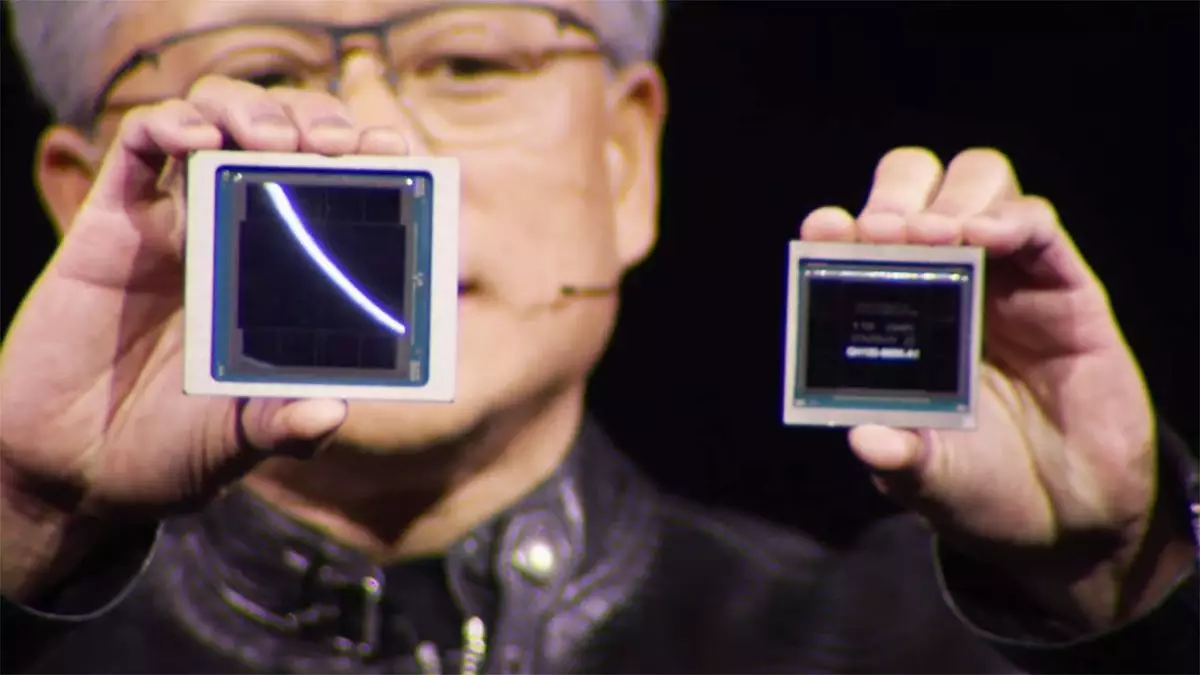Nvidia has once again found itself in the spotlight, albeit under less-than-ideal circumstances. The launch of the highly anticipated Blackwell chips for server racks, such as those powering Microsoft Azure, has faced unexpected delays and growing concerns about the reliability of the product. Reports indicate that while the chips have started to make their way to data centers, they might have come to market too hastily. A lack of thorough testing appears to have led to critical issues, specifically in high-voltage environments commonly found in data centers. These revelations emerged from credible sources within the tech community, suggesting that Nvidia’s rush to deploy its latest technology might have compromised its performance.
Nvidia engineers discovered these vulnerabilities shortly after the official announcement by CEO Jensen Huang, leading to speculation and doubt about the chip’s robustness. This scenario underscores the importance of rigorous testing and quality assurance before a product reaches the market, especially in an industry where reliability is paramount. Companies must prioritize their testing protocols to ensure that they are delivering quality products that meet industry standards. The fallout from this situation not only impacts Nvidia’s reputation but could also lead to broader consequences within the technology sector, particularly as data centers depend heavily on dependable hardware.
The failure of the Blackwell chips highlights a growing chasm between Nvidia and TSMC, the long-standing manufacturing partner that has played a crucial role in Nvidia’s success. Reports indicate a blame game unfolding, with TSMC accusing Nvidia of rushing the production timeline, while Nvidia points fingers at TSMC’s packaging technology for the faults in the chips. Such finger-pointing is symptomatic of deeper issues, which, if not addressed, could jeopardize their three-decade relationship.
There have been periods of cooperation and tension between the two companies, such as when Nvidia turned to Samsung for its 30-series ‘Ampere’ GPUs, a decision that ultimately resulted in supply chain bottlenecks and raised prices. The question that arises is whether Nvidia will continue to risk its relationship with TSMC or seek alternatives, like Samsung, in the future. Seeking a price reduction of 20-30% from TSMC might be an unrealistic expectation, especially when considering that TSMC remains the only major player with advanced fabrication processes and a commitment to third-party production.
Nvidia has hinted at possibly going back to Samsung due to the allure of better pricing. However, this kind of thinking raises red flags. Historically, Nvidia’s partnership with Samsung during the production of its Ampere GPUs was fraught with challenges, including production delays and soaring prices. Would Nvidia really want to risk a repeat of past inefficiencies when their current partner, TSMC, is experiencing tremendous growth and boosting their sales by nearly 39% compared to last year?
Even amid its recent struggles, Samsung remains a significant player in the semiconductor industry, yet its stock performance and recent exodus of foreign investors suggest that its stability is not guaranteed. If Nvidia were to transfer its allegiance to Samsung, it might trigger unintended consequences that could affect its supply chain and lead to further challenges down the line.
Despite the pressing issues surrounding the Blackwell chips, it is important to remain cautiously optimistic. Nvidia has an outstanding track record of innovation and resilience; however, as it moves forward, a careful assessment of its manufacturing relationships will be crucial. The primary focus should be on quality control measures and ensuring that the forthcoming RTX 50-series does not inherit the setbacks witnessed in the Blackwell series.
The implications of these technical and relational strains could ripple throughout the semiconductor industry, serving as a wake-up call for tech companies to reinforce their testing and verification processes. As Nvidia navigates these murky waters, it will be pivotal for the company to adopt a more strategic approach to partnerships, ensuring that it does not sacrifice quality for speed, thereby securing its reputation and sustaining customer trust. As this situation develops, the tech community will be watching closely, and the lessons learned here might shape the future trajectories of partnerships in the semiconductor realm.


Leave a Reply